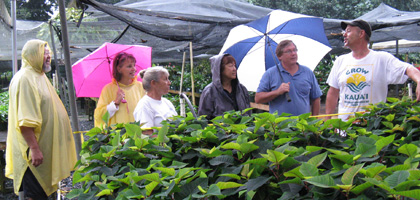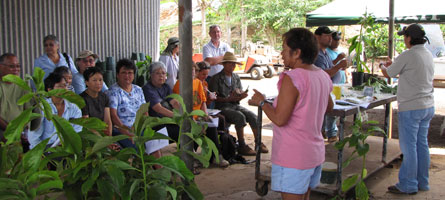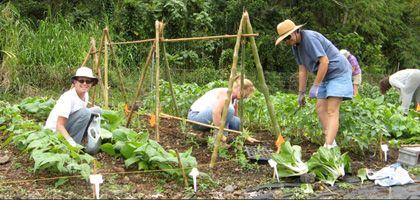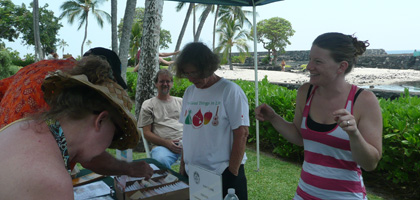
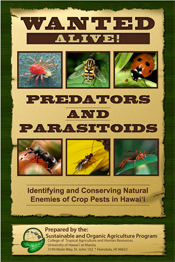 AVAILABLE from your
AVAILABLE from your
local master gardener program
Beneficial Insect Flashcard sets can be purchased for $10 from your local Master Gardener Office.
Click HERE to find the office nearest to you.
The Mission of the University of Hawaii Master Gardener Program is to provide the public with unbiased, research based information and sustainable management practices in tropical horticulture suitable for home gardens, local landscapes, urban environments and the community. The Master Gardener program is an educational outreach program administered by the University of Hawaii Cooperative Extension Service.
The University of Hawaii Master Gardener (UH MG) program is part of the Master Gardener Program found throughout the United States and Canada. First initiated in the State of Washington in 1972, the Master Gardener Program is a public service program that provides training to volunteers under the leadership of land-grant universities. To date over 94,865* people have become Master Gardeners Nationwide since the inception of the program. The Master Gardener program is a certification program which is recognized nationwide.
The University of Hawaii Master Gardeners are dedicated volunteers trained in horticultural education and sustainable practices by University Educators, Specialists and Researchers. In Hawaii the Master Gardener Program began in 1982. Master Gardeners expand and facilitate horticultural educational outreach efforts of the University of Hawaii Cooperative Extension Service to the general public and community groups and promote environmentally sustainable practices throughout Hawaii.
Master Gardener Program Objectives:
-
Expand the educational outreach efforts of the University of Hawaii Cooperative Extension Service to distribute research-based horticultural information to the gardening public.
-
Develop and enhance educational programs related to consumer horticulture such as urban gardening, community gardening, youth gardening projects, or any other programs determined by local need.
-
Develop a volunteer network designed to assist Extension staff in managing local Master Gardener volunteer activities and programs.
What is a Master Gardener?
Master Gardeners are adults (18 years and over), who love gardening, want to learn and to share their knowledge with others through volunteer educational services. Master Gardener volunteers are an important Extension resource for expanded outreach into the community. The trained Master Gardener volunteers help Extension to meet the overwhelming demand for research based horticultural and gardening information to the public.
The Master Gardener Training
Master Gardeners receive about 40+ hours of classroom training in topics such as: Botany, soil fertility, pruning, vegetables, organic gardening techniques, trees & shrubs, ornamentals, landscape design, insects, diseases, fruits and more. Volunteer requirement is a minimum of 40 hours per year and is determined by the Coordinator for each program. Master Gardener volunteers activities include: staffing booths at County Fairs, host plant clinics and plant sales, conduct workshops, develop and maintain community and educational gardens, write advice columns at local newspapers and operate help lines at County Extension offices answering gardening, questions, school gardening and community gardens.



